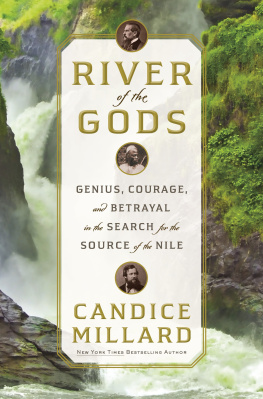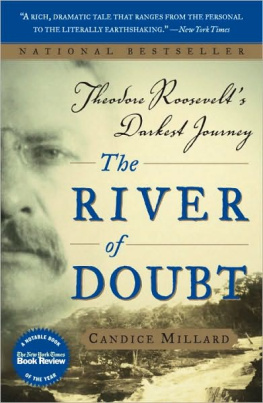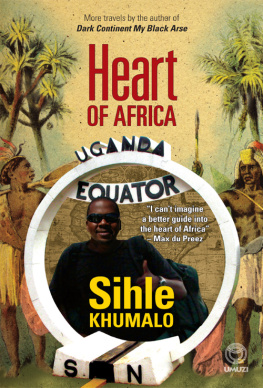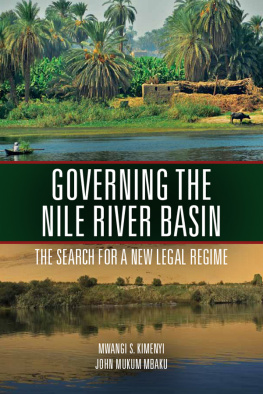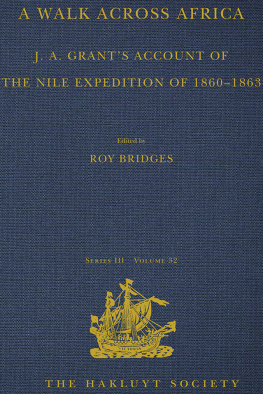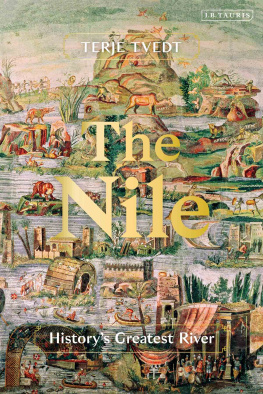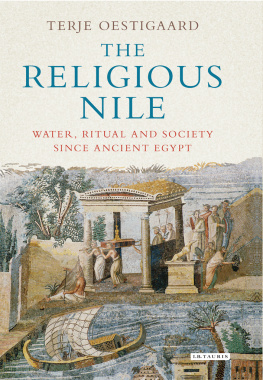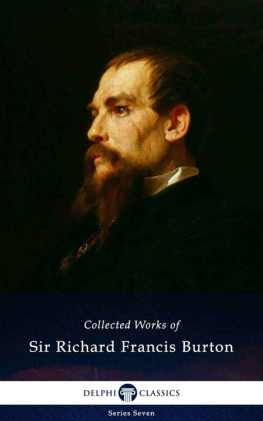Candice Millard - River of the Gods: Genius, Courage, and Betrayal in the Search for the Source of the Nile
Here you can read online Candice Millard - River of the Gods: Genius, Courage, and Betrayal in the Search for the Source of the Nile full text of the book (entire story) in english for free. Download pdf and epub, get meaning, cover and reviews about this ebook. year: 2022, publisher: Doubleday, genre: Art. Description of the work, (preface) as well as reviews are available. Best literature library LitArk.com created for fans of good reading and offers a wide selection of genres:
Romance novel
Science fiction
Adventure
Detective
Science
History
Home and family
Prose
Art
Politics
Computer
Non-fiction
Religion
Business
Children
Humor
Choose a favorite category and find really read worthwhile books. Enjoy immersion in the world of imagination, feel the emotions of the characters or learn something new for yourself, make an fascinating discovery.
- Book:River of the Gods: Genius, Courage, and Betrayal in the Search for the Source of the Nile
- Author:
- Publisher:Doubleday
- Genre:
- Year:2022
- Rating:3 / 5
- Favourites:Add to favourites
- Your mark:
River of the Gods: Genius, Courage, and Betrayal in the Search for the Source of the Nile: summary, description and annotation
We offer to read an annotation, description, summary or preface (depends on what the author of the book "River of the Gods: Genius, Courage, and Betrayal in the Search for the Source of the Nile" wrote himself). If you haven't found the necessary information about the book — write in the comments, we will try to find it.
For millennia the location of the Nile Rivers headwaters was shrouded in mystery. In the 19th century, there was a frenzy of interest in ancient Egypt. At the same time, European powers sent off waves of explorations intended to map the unknown corners of the globe and extend their colonial empires.
Richard Burton and John Hanning Speke were sent by the Royal Geographical Society to claim the prize for England. Burton spoke twenty-nine languages, and was a decorated soldier. He was also mercurial, subtle, and an iconoclastic atheist. Speke was a young aristocrat and Army officer determined to make his mark, passionate about hunting, Burtons opposite in temperament and beliefs.
From the start the two men clashed. They would endure tremendous hardships, illness, and constant setbacks. Two years in, deep in the African interior, Burton became too sick to press on, but Speke did, and claimed he found the source in a great lake that he christened Lake Victoria. When they returned to England, Speke rushed to take credit, disparaging Burton. Burton disputed his claim, and Speke launched another expedition to Africa to prove it. The two became venomous enemies, with the public siding with the more charismatic Burton, to Spekes great envy. The day before they were to publicly debate,Speke shot himself.
Yet there was a third man on both expeditions, his name obscured by imperial annals, whose exploits were even more extraordinary. This was Sidi Mubarak Bombay, who was enslaved and shipped from his home village in East Africa to India. When the man who purchased him died, he made his way into the local Sultans army, and eventually traveled back to Africa, where he used his resourcefulness, linguistic prowess and raw courage to forge a living as a guide. Without Bombay and men like him, who led, carried, and protected the expedition, neither Englishman would have come close to the headwaters of the Nile, or perhaps even survived.
In River of the Gods Candice Millard has written another peerless story of courage and adventure, set against the backdrop of the race to exploit Africa by the colonial powers.
Candice Millard: author's other books
Who wrote River of the Gods: Genius, Courage, and Betrayal in the Search for the Source of the Nile? Find out the surname, the name of the author of the book and a list of all author's works by series.

